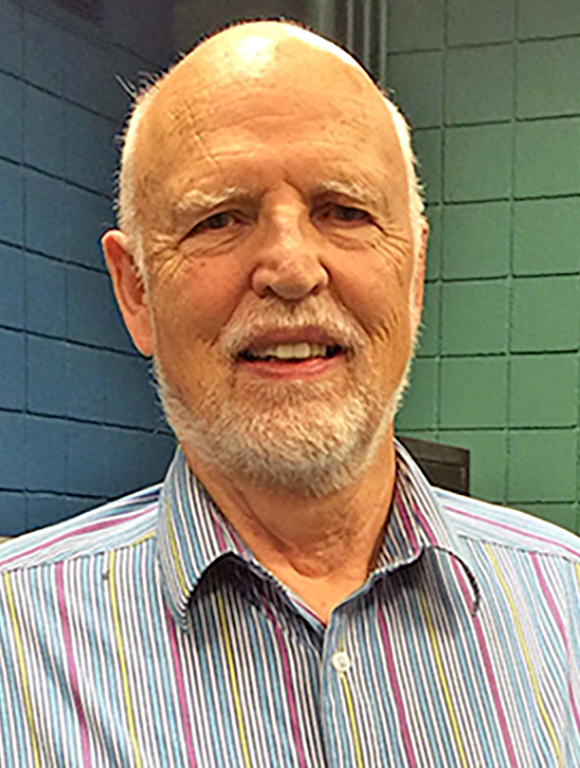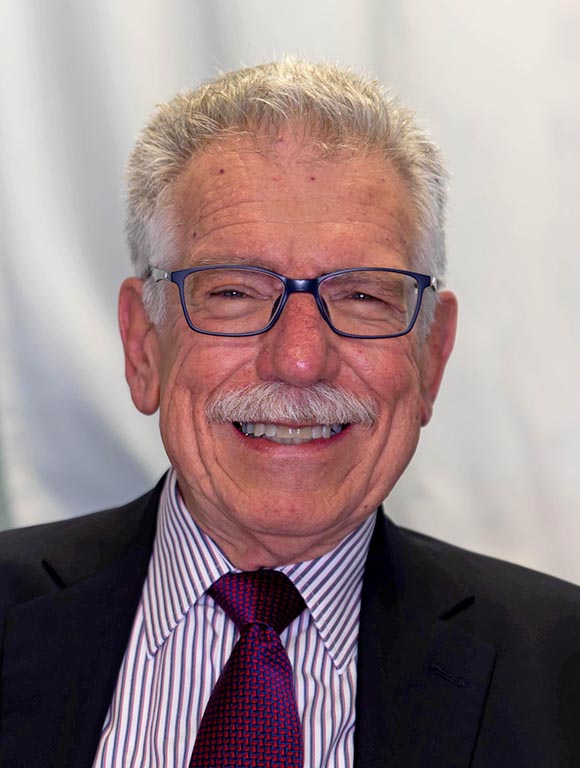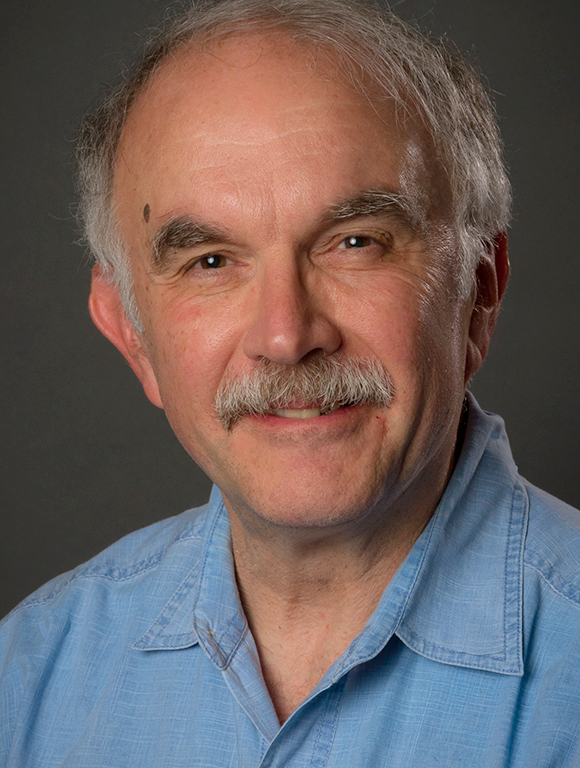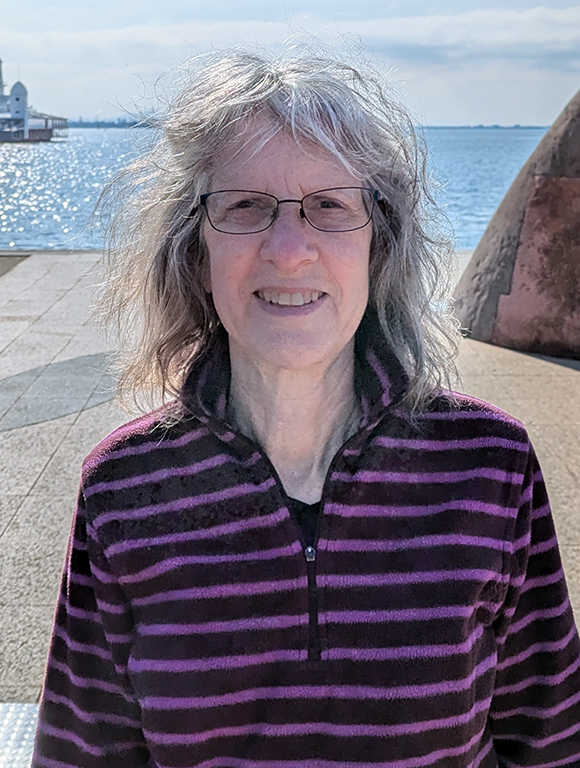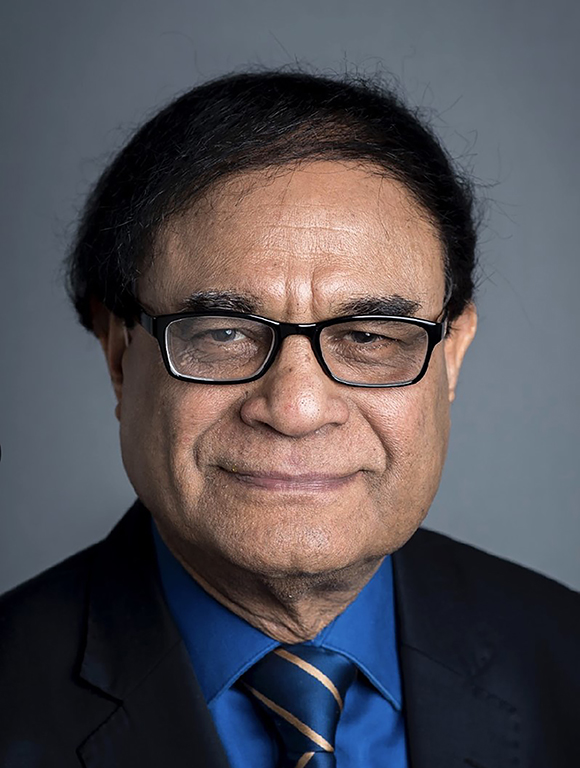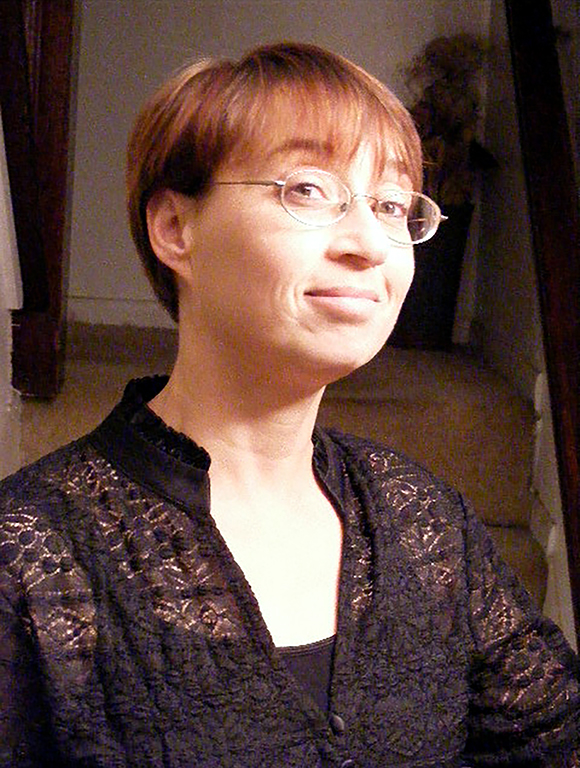Michigan State University recognized more than 160 faculty and academic staff for decades of dedicated service to the university and their unwavering commitment to supporting students.
MSU honors long-time faculty and academic staff annually for their outstanding work spanning more than two decades. On Sept. 25, MSU and the Office of the Provost hosted an Academic Service Recognition Reception at Cowles House to honor faculty and staff for their extended years of service, ranging from 25 to 59 years.
"These Spartans have made countless contributions over the years, reflecting a steadfast commitment to academic excellence and student success, not only upholding our great university but also propelling it into an even brighter future,” shared Thomas Jeitschko, interim provost and executive vice president for academic affairs. “I’m truly grateful for their invaluable service to MSU, their fields of study, and the countless individuals they have positively impacted throughout their journey.”
Staying where you’re happy
When William Vincent, professor of English and film studies in the College of Arts and Letters, joined MSU in 1965, he expected to stay for only a short time.
Now, 59 years later, Vincent continues to teach film, helping lead an area of study that he helped start at MSU in the 1990s.
“I just like the atmosphere here. I like the students. I like the campus. Why not stay where you’re happy,” said Vincent, who has also delayed retirement to continue his work at MSU. “I can’t think of anything I would rather be doing than teaching, I enjoy it so much.”
Vincent started his career at MSU as a Humanities professor, a subject he taught until he said the Department of Humanities folded in the early 1990s. The MSU Residential College in the Arts and Humanities then opened to students in 2007. Humanities professors taught their required common Humanities courses but were also allowed to teach a course of their choosing. Vincent focused on film.
Among his early classes was a course on renowned filmmaker Alfred Hitchcock, as well as an introduction to film course. When the humanities department folded, Vincent was invited to join the Department of English, and he brought his film program along.
Since then, the film program has grown to include filmmaking as well as a film major and minor.
Vincent teaches a screenwriting course, but he also has taught an introduction to film course about 25 years ago, as well as courses focused on western, horror and musical films, among others.
Among the accomplishments Vincent is especially proud of is his creation of the Film in Britain overseas program that he created in 1986, which is still running today, as well as a filmmaking in Mexico program that ran from 1991 to 2003.
Outside of his teaching, Vincent writes scripts for low-budget movies, including the horror film “Terror at Baxter U,” starring students, local actors and himself.
He also does some acting on the side to help his students, often stepping in as the film’s “old person” when students need it, he joked.
It’s working with the students that Vincent enjoys the most. He gets to show the students films and watches them as they start to understand and analyze the movies, rather than just watching them for entertainment. His connection with his students often lasts beyond graduation.
“It’s that relationship with the students that I think is most satisfactory,” he said. “I have a lot of former students who contact me and it’s very nice to hear from them and hear that they learned a lot from me, and they used that to further their careers.”
Making a difference
MSU also honored Paul Freddolino, a professor in the School of Social Work in the College of Social Science, for his 45 years of influential research and social work education.
Since he started at MSU in 1979, Freddolino taught a variety of courses to undergraduate and graduate students in research, mental health and administrative skills for social work practice. His teaching focus has shifted primarily to doctoral and Master of Social Work students.
Freddolino has engaged in various research projects over his 45 years at MSU, with unwavering support from the university. Initially focusing on mental and behavioral health, he shifted to social work education in the 1990s, helping to develop the country’s first interactive video MSW program. He led the creation of the Statewide Blended MSW Program in 2005, integrating in-person and technology-assisted instruction. His recent research has centered on technology in social work practice, especially for older adults.
Since 2001 he has also conducted research in the United Kingdom, Hong Kong and Australia during three sabbaticals.
MSU has seen significant changes during the more than four decades that Freddolino has taught and conducted research. When he started, the Wharton Center for Performing Arts had not yet been built. After it opened in 1982, Freddolino witnessed a transformation in the university’s cultural life. Important changes in university outreach and community-based research have also been apparent.
The overall academic structure — departments, majors and even whole colleges — has also undergone significant changes. The impact of the COVID-19 pandemic can still be seen at MSU, as Freddolino sees fewer colleagues around campus. And the events of Feb. 13, 2023, have left an indelible mark on the campus atmosphere.
Despite the changes over the years, one thing has remained constant — the dedication to teaching and scholarship that continues to drive Freddolino more than 40 years later.
“I’ve been very happy here,” he said. “I feel that my research work is still making a difference in people’s lives. That’s what motivates me. That’s what keeps me going. It is the kind of impact that you can have as a faculty member at a globally recognized university that it would be hard to duplicate if I were outside the university. It has been a privilege and a wondrous gift to have a tenure system position at MSU. I’m still trying to utilize that gift and bring benefit to both my students and the people who are recipients of the work that I do through my projects.”
Solving new puzzles
For Peter Gulick, professor of medicine at the MSU College of Osteopathic Medicine and adjunct faculty in the College of Human Medicine and College of Nursing, his 40 years of service at MSU began in 1984.
Gulick’s impact has been felt across all MSU’s medical colleges. His research and teaching interests have evolved over his four decades at MSU, with a more recent focus on infectious disease, particularly HIV therapy. He is the director of the MSU HIV/Hepatitis Clinic.
Gulick’s interest in infectious disease extends to instruction, as he teaches first- and second-year medical students courses on the basic principles of hematology, oncology and infectious disease. He also serves as the curriculum coordinator for a course involving oncology, hematology and infectious disease.
He actively teaches MSU medical residents and provides HIV clinics with teaching for MSU infectious disease fellows.
His research examines different HIV medications, as well as translational research with Norbert Kaminski in MSU’s Institute for Integrative Toxicology, with funding from the National Institutes of Health. Their research studies how HIV affects patients’ brains, an area that lacks significant amounts of research.
Gulick treated cancer patients at the MSU oncology clinic at the Great Lakes Cancer Institute until 2007. He now cares for HIV patients at the Forest Community Health Center, which is part of the Ingham County Health Department. Additionally, he has Ryan White HIV clinics in Saginaw and Rosebush. Gulick cares for about 1,000 patients and has treated HIV patients for 40 years.
He has also provided care to Hepatitis C patients for the last 25 years.
“MSU has given me a lot of support and a lot of freedom,” Gulick said, noting he has turned down offers to work for other colleges and medical institutions to continue the work he enjoys at MSU. “I’ve done what I wanted to do with my teaching and research, and I’ve had a lot of support. It’s doing something that involves looking into new areas and trying to use your ability to solve some new puzzles that are out there.”
'I bleed green’
Susan Masten earned a strong reputation over 35 years at MSU for her caring education to generations of environmental engineers, impactful drinking water treatment research and contributions to advancing environmental engineering nationwide.
Masten, a professor in the College of Engineering’s Department of Civil and Environmental Engineering, arrived at MSU in 1989 and has taught numerous courses, from principles of environmental engineering and science to physical-chemical processes in environmental engineering. She served as the lead instructor for the civil and environmental engineering design capstone course.
Beyond teaching, Masten advised students and student teams that participate in events like the Waste-management Education Research Consortium contests at New Mexico State University and the Air and Waste Management Association Environmental Challenge International Competition.
“One of the best parts of teaching is seeing the progress students make, often in one semester,” Masten said. “It is extremely rewarding to work with these students and help them achieve success in national and international competitions.”
Water and water treatment has been the focus of Masten’s decades of research, including the use of chemical oxidants for the remediation of contaminated water, soils and leachates. Her more recent research examines the use of ozone-ceramic membrane filtration to treat drinking waters containing organic matter and emerging contaminants.
In total, Masten has published more than 100 publications and graduated more than 50 master’s degree students and 15 doctorate students.
She uses her expertise to advise state leaders and influence state drinking water regulations, including as a member of the state’s Advisory Board of Examiners for Drinking Water and through her appointment to the Michigan PFAS Science Advisory Committee. Masten led efforts to perform independent lead testing, including at public schools, in Flint during the Flint Water Crisis.
At MSU, Masten serves as the advisor to the Environmental Engineering Student Society and the MSU chapter of Engineers Without Borders, is a co-author of the “Principles of Environmental Engineering and Science” textbook and was recently a member of the Association of Environmental Engineering and Science Professors Board of Directors.
“I bleed green,” said Masten, who has two sons who also graduated from MSU, the older in political science and the younger in mechanical engineering. “I've stayed because I believe in the land grant mission. I have been able to work with communities dealing with hazardous waste contamination and lead in drinking water. I have been able to educate the next generation of environmental engineers, while being able to collaborate with scientists and engineers from a variety of disciplines. I believe I've been able to make a difference and hopefully leave the world a bit better place.”
Impacting thousands of students
Fayyaz Hussain has spent more than 30 years at MSU as a student and a teacher, impacting the lives of more than 50,000 students.
Hussain, a professor in the College of Social Science’s Center for Integrative Studies in Social Science, arrived at MSU in 1986 as a doctoral student in sociology, armed with two master’s degrees and just $350 to his name. He was offered a teaching and research assistantship to help generate some income, a favor from MSU that Hussain continues to repay more than three decades later.
Every semester, Hussain teaches three large classes on social inequality to a combined total of 700 students. He also teaches summer courses and leads an education abroad program in Belize. His research focuses on social inequality, with an emphasis on gender inequality, poverty and hunger.
Hussain was awarded a U.S. Scholars Fulbright Fellowship for the 2023-24 academic year to support his work in Pakistan, where his teaching career started. Through the Fulbright Fellowship, Hussain conducted a research project on violence against women in Pakistan, including interviewing more than 200 people in women’s shelters. His work was delayed, however, as he was required to obtain a No Objection Certificate from the government of Pakistan, which took four months to arrive, and therefore was not paid for his work.
He intends to return to complete his teaching and research in Pakistan next year.
His work in Pakistan also includes improvements to a rundown school he visited during the holiday break about six years ago. Several classes were held outside in the cold December weather because there wasn’t enough room inside the school. This prompted Hussain and a friend to donate $30,000 to build five additional classrooms, ensuring all students at the school could learn in a comfortable and warm environment.
Furthermore, Hussain leads a service-learning program that engages his students in working at schools, nursing homes and medical facilities in Greater Lansing.
The classes he teaches are general education, with hundreds of students in each class coming from various backgrounds and majors, from engineering to chemistry. His outstanding work has earned awards and recognition, and he hopes his teaching impacts the lives of the thousands of students who come into his classroom.
“Whether you’re a doctor, or an engineer, or a businessman, whosoever you are, ultimately you deal with human beings,” Hussain said. “Ultimately they are your clients, and you need to have some knowledge of social sciences that relates to these individuals, their lives, their issues.”
An easy fit
For Susanne Garber, her 25 years at MSU have focused not only on teaching music to children but also on cultivating future generations as engaged citizens.
Garber teaches violin and viola and serves as the chair of Suzuki and Strings at the MSU Community Music School, which offers in-person lessons, classes, ensembles and music therapy for all ages and abilities. She began her journey as a graduate student teaching in the Suzuki String and Piano program. Suzuki is a teaching method and philosophy that emphasizes teaching the whole child, not just to be a good musician, but a good citizen and human being.
The MSU Community Music School was looking to hire a co-director of the Suzuki String and Piano program as Garber was completing her doctorate, marking the start of Garber’s professional career at MSU.
She has found joy throughout her career in meeting new students and new people, getting to know them over many years. Many students began attending classes with Garber at age 3 and continued until they were 18. Some of her students come from the local community, while others travel to MSU from around the world.
“It’s a great honor to be able to teach a whole child and allow them to grow as a person as well as a musician and to see all these children grow up and graduate from high school and go on to college and have great lives,” Garber said. “It’s been a great experience being at MSU. It was an easy fit for me.”
Staying at MSU for the last 25 years has been an easy decision for Garber. Not only is it a great fit for her at this stage in her career, but it also offers valuable benefits and resources. In the world of music, she said it’s hard to find a full-time position like this.
MSU has changed significantly since Garber first arrived, but her passion for teaching students — from children to senior citizens — has never wavered.
Learn more and see a complete list of the Academic Service Recognition honorees on the Office of the Provost website.
